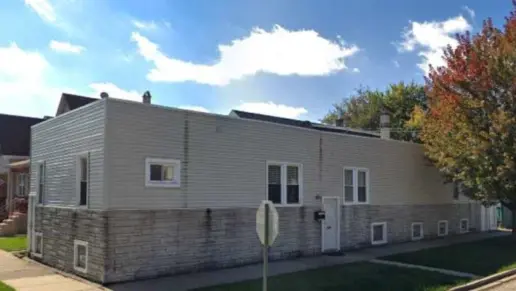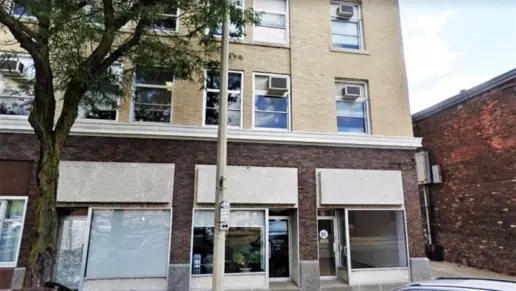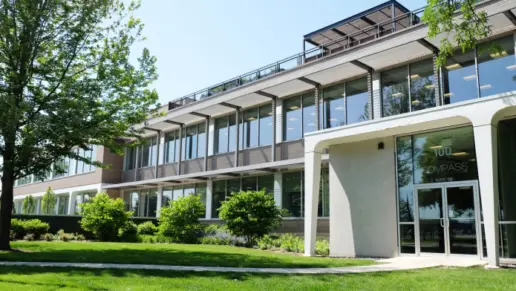One certain counselor kept telling me he had no time to talk to me and closed the door in my face. They put all these counselors who have no real concept of professionalism or respect.
About New Age Services Corporation
New Age Services Corporation (NASC) provides substance abuse and mental health treatment in Chicago, Illinois. They offer convenient outpatient programs that make getting care flexible for those wanting to continue working or attending school.
Whole-Person Approach to Treatment
NASC provides services to help guests get clean and stay sober. They offer medication-assisted treatment (MAT) to lessen withdrawal symptoms for clients experiencing opioid addiction. They use methadone, one of the FDA-approved treatments, to reduce drug cravings.
This service is combined with counseling to address the whole person, not only the addiction symptoms. The Opioid Addiction Treatment (OATS) program is available for guests 18 and older.
DUI Education and Counseling
They offer DUI services that meet court requirements for those with driving under the influence violations. The goal is to help you understand how drugs and alcohol affect your thought processes and reduce the chances of repeat offenses.
You’ll start with an intake session and then receive a schedule of mandatory classes and appointments. Your attendance is regulated due to the court-ordered class completion requirements.
NASC provides substance abuse education and intervention for the entire family because addiction affects loved ones, too. The focus is on helping the family unit heal and move forward as a cohesive and supportive network with appropriate boundaries for sobriety.
Comprehensive Care for Community Reintegration
The staff will empower you to make informed decisions related to drug and alcohol use. They believe early intervention is one of the best ways to help those we love who struggle with substance abuse.
Their reentry service helps keep offenders from being incarcerated and instead receive treatment. NASC wants to provide safety for the community and help guests live healthy, sober lifestyles.
Latest Reviews
Rehab Score
Accepted Insurance

Other Forms of Payment
Medicaid is a state based program that helps lower-income individuals and families pay for healthcare. Medicaid covers addiction treatment so those enrolled can use their coverage to pay for rehab. When a program accepts Medicaid the client often pays very little or nothing out of their own pocket.
Self-pay involves paying for treatment out of your own pocket. You can use savings or credit, get a personal loan, or receive help from family and friends to fund your treatment. If you don't have insurance or your insurance plan doesn't cover a specific program, self-pay can help ensure you still get the care you need.
Financial aid can take many forms. Centers may have grants or scholarships available to clients who meet eligibility requirements. Programs that receive SAMHSA grants may have financial aid available for those who need treatment as well. Grants and scholarships can help you pai for treatment without having to repay.
Sliding scale payments are based on a client's income and family size. The goal is to make treatment affordable to everyone. By taking these factors into account, addiction recovery care providers help ensure that your treatment does not become a financial burden to you or your family, eliminating one barrier to care.
Addiction Treatments
Levels of Care
Treatments
The goal of treatment for alcoholism is abstinence. Those with poor social support, poor motivation, or psychiatric disorders tend to relapse within a few years of treatment. For these people, success is measured by longer periods of abstinence, reduced use of alcohol, better health, and improved social functioning. Recovery and Maintenance are usually based on 12 step programs and AA meetings.
Drug rehab in Illinois is designed to help people recover from addiction to a number of substances. The length of each program and its intensity tend to vary, and the plan of care is based on your individual needs.
Many of those suffering from addiction also suffer from mental or emotional illnesses like schizophrenia, bipolar disorder, depression, or anxiety disorders. Rehab and other substance abuse facilities treating those with a dual diagnosis or co-occurring disorder administer psychiatric treatment to address the person's mental health issue in addition to drug and alcohol rehabilitation.
Opioid rehabs specialize in supporting those recovering from opioid addiction. They treat those suffering from addiction to illegal opioids like heroin, as well as prescription drugs like oxycodone. These centers typically combine both physical as well as mental and emotional support to help stop addiction. Physical support often includes medical detox and subsequent medical support (including medication), and mental support includes in-depth therapy to address the underlying causes of addiction.
Substance rehabs focus on helping individuals recover from substance abuse, including alcohol and drug addiction (both illegal and prescription drugs). They often include the opportunity to engage in both individual as well as group therapy.
Programs


Clinical Services
Group therapy is any therapeutic work that happens in a group (not one-on-one). There are a number of different group therapy modalities, including support groups, experiential therapy, psycho-education, and more. Group therapy involves treatment as well as processing interaction between group members.
Trauma therapy addresses traumatic incidents from a client's past that are likely affecting their present-day experience. Trauma is often one of the primary triggers and potential causes of addiction, and can stem from child sexual abuse, domestic violence, having a parent with a mental illness, losing one or both parents at a young age, teenage or adult sexual assault, or any number of other factors. The purpose of trauma therapy is to allow a patient to process trauma and move through and past it, with the help of trained and compassionate mental health professionals.
Staff & Accreditations
Staff
CEO
Medical Director
CFO
Director of Clinical Services
Chair, BOD
Accreditations

The Substance Abuse and Mental Health Services Administration (SAMHSA) is a branch of the U.S. Department of Health and Human Services. Established in 1992 by congress, SAMHSA's mission is to reduce the impact of substance abuse and mental illness on American's communities.
SAMHSA Listed: Yes
Contact Information
1330 South Kostner Avenue
Chicago, IL 60623



